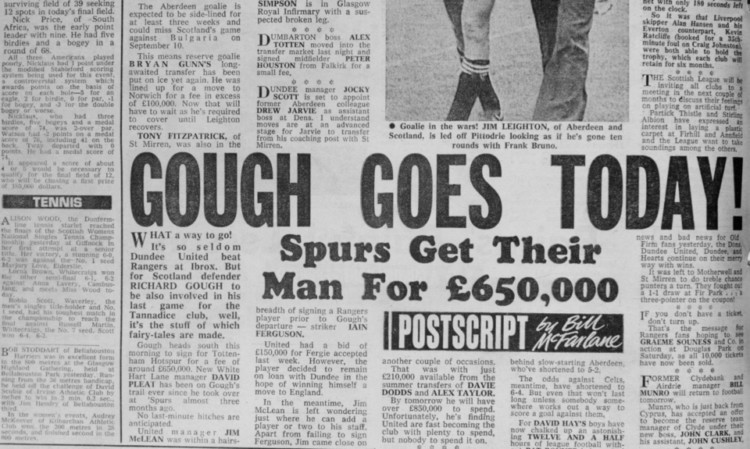
Sky Sports News has turned transfer day deadline in England into a must-watch production.
The broadcaster has taken full advantage of FIFA’s dogmatic stance in these matters by dramatising every detail of clubs trying to make a last-minute signing.
Essential viewing for football fans, but often it borders on farce.
Last Monday we even had the incredible situation of three lawyers, who specialise in Basque fiscal complications, being at the Madrid headquarters of Spain’s Professional Football League in case Manchester United decided to match the £30.5-million buy-out clause for Athletic Bilbao midfielder Ander Herrera.
Oh for when clubs could sign players at any time, agents hadn’t been invented and lawyers and accountants didn’t realise they could make money out of football!
It made my job a lot more fun, too.
Until the Bosman Ruling, it was commonplace for football writers like myself to be involved in behind-the-scenes manoeuvering on behalf of managers we were friendly with.
We were occasionally asked by a prospective buyer if a certain player would be interested in a move, and what price his club valued him at.
It was quite simply pure, unashamed tapping.
Although it wasn’t entirely ethical, just about every club did business this way.
I well remember being asked in 1986 to find out if Richard Gough would be interested in a move from Dundee United to Tottenham Hotspur.
He most certainly was, especially after United had just refused to sell him to Rangers.
My pay off came with a Saturday night phone call from Spurs to tell me United had accepted their £650,000 offer for the defender.
The Sunday Post back page heading the following day read ‘GOUGH GOES TODAY Spurs Get Their Man For £650,000.’
What I didn’t know was that Chelsea had just had a similar bid accepted by United.
As I wasn’t involved in any of their behind-the-scenes moves, I didn’t know of the Stamford Bridge club’s interest.
Fortunately for me, Gough was as good as his word and he did indeed sign for Spurs that day.
There are hundreds of tales like that one from what have very quickly become the good old days.
After the almost ludicrous situations some players and clubs found themselves in last Monday, FIFA really should think about abandoning the transfer window.
Many clubs are now experiencing a hand-to-mouth existence.
Yet they are being denied the possibility of selling a player whenever required, possibly even to stave off extinction.
In these austere times, the transfer window should be smashed.

Enjoy the convenience of having The Sunday Post delivered as a digital ePaper straight to your smartphone, tablet or computer.
Subscribe for only £5.49 a month and enjoy all the benefits of the printed paper as a digital replica.
Subscribe